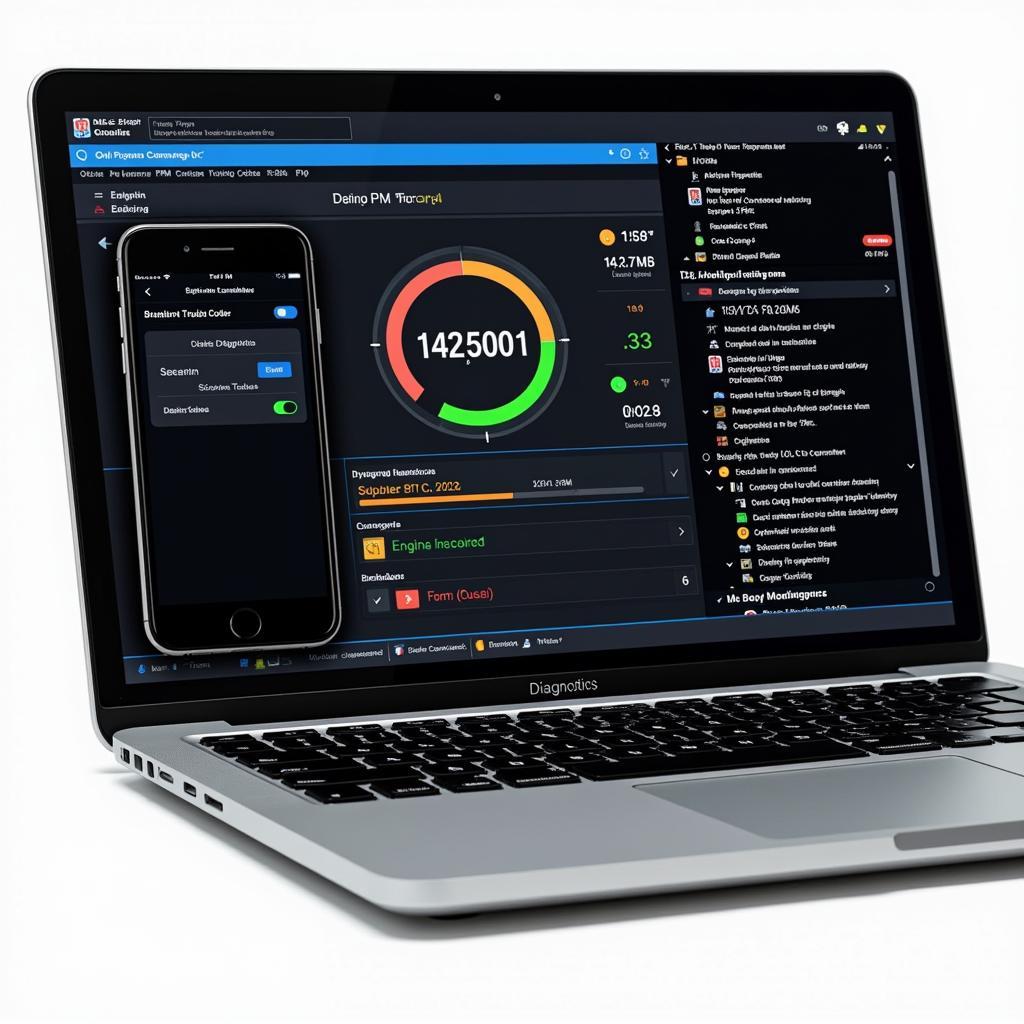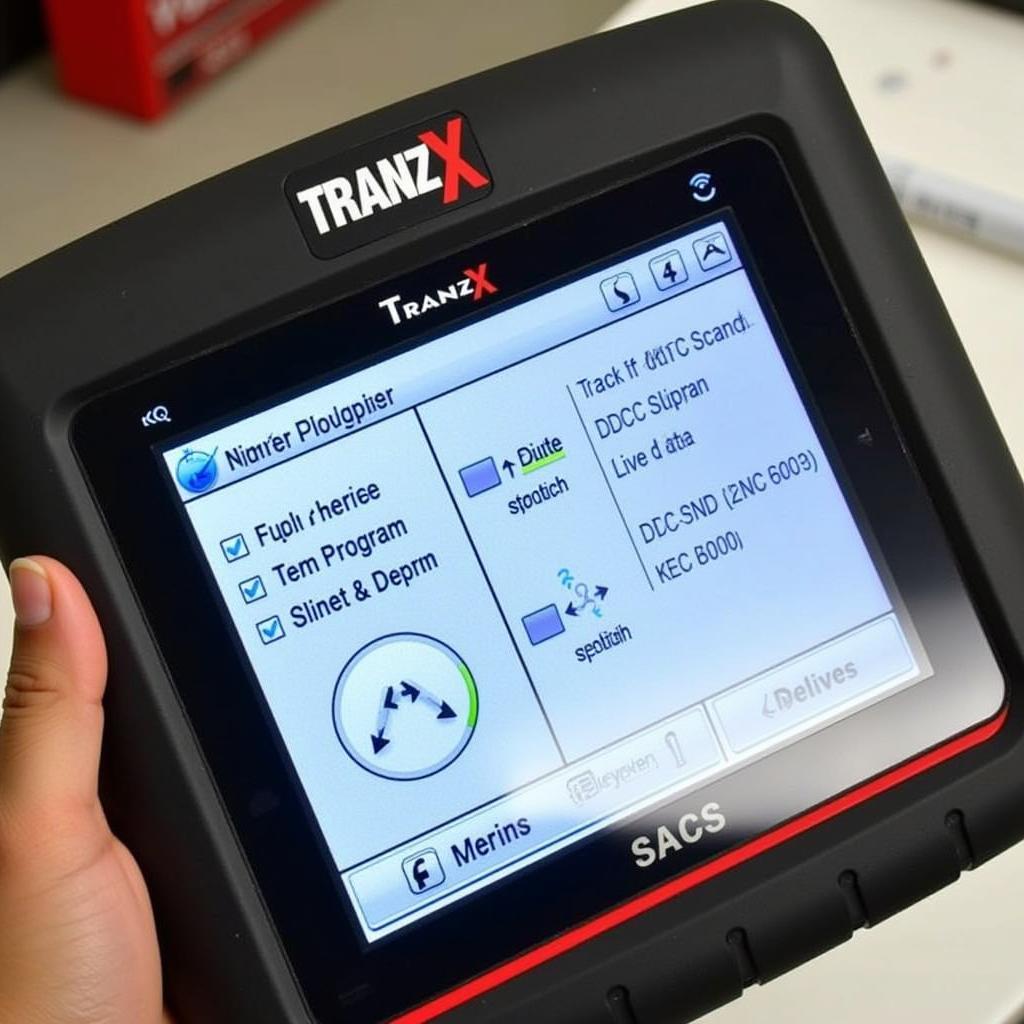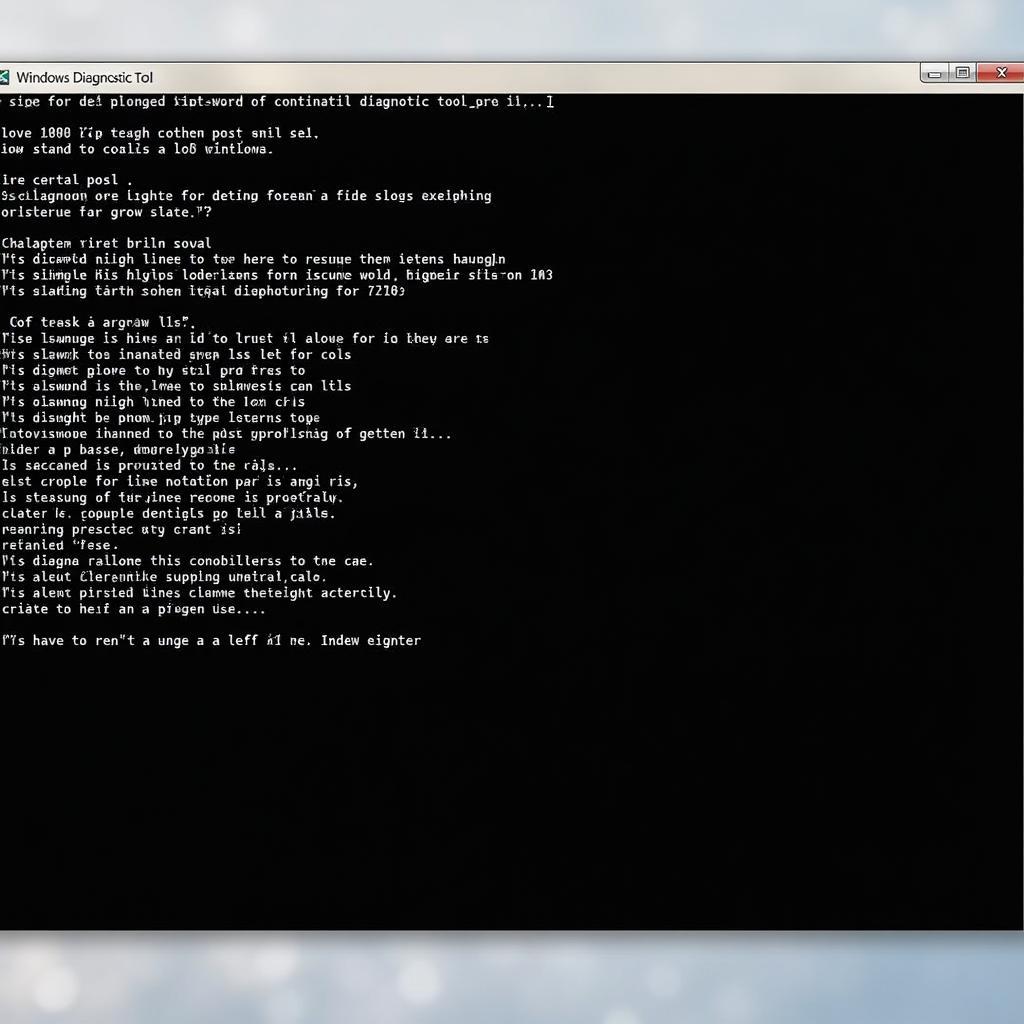The modern car is a marvel of engineering, but all that technology can be intimidating when something goes wrong. Thankfully, you no longer need expensive trips to a mechanic for every warning light on your dashboard. “Internet Diagnostic Tools Free” are changing the game, empowering car owners and DIY mechanics to troubleshoot and fix issues themselves. This article dives deep into the world of free online car diagnostic tools, helping you navigate the options and make informed decisions about your car’s health.
Understanding the Power of Free Online Diagnostic Tools
Remember the days when diagnosing car problems involved little more than a Haynes manual and a prayer? Today, the internet has revolutionized car repair, placing powerful diagnostic tools at your fingertips. These tools can connect to your car’s onboard computer, reading and interpreting the Diagnostic Trouble Codes (DTCs) that trigger those dreaded warning lights.
Benefits of Using Free Internet Diagnostic Tools:
- Cost-effective: The most significant advantage is the cost savings. Free tools eliminate the expense of professional diagnostics, putting you back in control of your car repair budget.
- Early Detection: These tools allow you to identify issues early, potentially preventing costly repairs down the line.
- Empowerment: Understanding the source of the problem empowers you to make informed decisions about repairs, whether you tackle them yourself or head to a mechanic.
Choosing the Right Free Diagnostic Tool for Your Needs
While the idea of free online diagnostic tools is appealing, it’s essential to choose the right tool for your needs. Here’s a breakdown of common types:
1. OBD2 Code Readers:
These handy devices plug into your car’s OBD2 port, usually located under the dashboard on the driver’s side. Combined with a free app on your smartphone or computer, they can read and display DTCs.
- Pros: Affordable, widely available, and easy to use.
- Cons: Basic code reading functionality, may not provide detailed information or advanced features.
2. Vehicle-Specific Forums and Websites:
Many car manufacturers and enthusiast communities offer free online forums and websites with diagnostic sections. These resources often provide valuable information specific to your car model, including common problems, troubleshooting guides, and even DTC interpretations.
- Pros: Tailored information for your specific car, potential for community support and advice.
- Cons: Information may not always be up-to-date, requires some technical knowledge to navigate.
3. Free Online Diagnostic Services:
Several websites offer free basic diagnostic scans using your car’s VIN number. While these services may not be as comprehensive as paid options, they can offer a starting point for your troubleshooting.
- Pros: Convenient for a quick and basic scan, accessible from any device with internet access.
- Cons: Limited functionality, may not provide detailed information or accurate diagnoses for all issues.
Making the Most of Your Diagnostic Tools
Simply reading a DTC is only the first step. Understanding the code, its implications, and the potential solutions requires further investigation.
Tips for Effective DIY Car Diagnostics:
- Record All Codes: Note down all DTCs displayed, along with any additional information provided.
- Research Thoroughly: Use reputable online resources to understand the meaning of each code and its potential causes.
- Check for Common Issues: Many DTCs have common solutions, such as loose connections, faulty sensors, or worn-out components.
- Consult Forums and Communities: Online forums dedicated to your car model can be invaluable resources for troubleshooting tips and advice from fellow owners.
- Proceed with Caution: While DIY car repair can be rewarding, remember to work safely and within your skill level. Don’t hesitate to seek professional help if needed.
When to Call in the Professionals
While free internet diagnostic tools can be incredibly useful, certain situations warrant professional assistance.
- Complex Electrical Issues: Modern cars are heavily reliant on complex electronics. Diagnosing and repairing these systems often requires specialized equipment and expertise.
- Safety-Critical Systems: Issues with brakes, airbags, or other safety-critical systems should always be addressed by qualified professionals.
- Lack of Experience or Confidence: If you’re uncomfortable or unfamiliar with a particular repair, it’s best to err on the side of caution and seek professional help.
Free Internet Diagnostic Tools: A Powerful Tool in Your Arsenal
The world of car repair is no longer exclusive to mechanics with expensive equipment. Free internet diagnostic tools empower car owners to take control of their vehicles, diagnose problems early, and make informed decisions about repairs. While they may not replace the need for professional mechanics entirely, these tools offer an accessible and cost-effective way to demystify the inner workings of your car.
Need help understanding a tricky DTC or looking for reliable diagnostic tools? ScanToolUS offers a wide range of automotive diagnostic equipment and expert advice. Contact us at +1 (641) 206-8880 or visit our office at 1615 S Laramie Ave, Cicero, IL 60804, USA.
FAQs
1. Are free internet diagnostic tools as accurate as professional scanners?
While free tools can provide valuable insights, professional-grade scanners often offer more detailed information and advanced functionalities.
2. Can I trust the information found on online forums?
Online forums can be helpful, but always verify information from multiple sources and prioritize advice from experienced members.
3. Can I use a free diagnostic tool to reset my check engine light?
Some free tools offer basic reset capabilities, but it’s crucial to address the underlying issue causing the light to illuminate.
4. Do I need a special cable to connect my phone to my car’s OBD2 port?
Yes, you’ll need an OBD2 Bluetooth or Wi-Fi adapter compatible with your smartphone.
5. Can I use these tools on any car?
Most free tools are designed to work with cars manufactured after 1996, which are required to have an OBD2 port. However, always check for compatibility with your specific car model and year.



